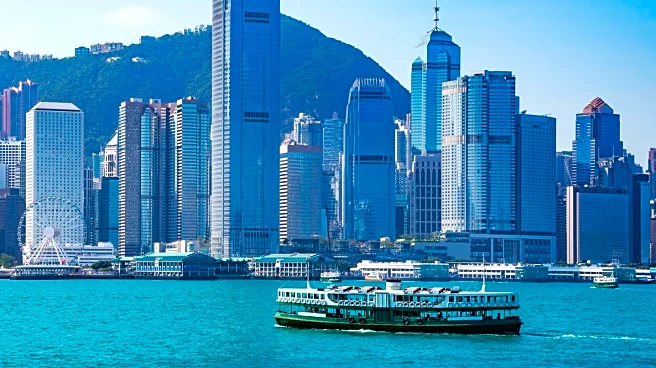What's Happening?
Hong Kong has been named the 'Most Promising Muslim-Friendly Destination of the Year' by CrescentRating in the Halal in Travel Awards 2025. The city also achieved third place among non-Organisation of Islamic Cooperation (OIC) destinations in the Global Muslim Travel Index (GMTI) 2025. These accolades reflect Hong Kong's efforts to enhance its tourism sector to accommodate Muslim travelers, focusing on halal food availability, Muslim-friendly facilities, and accommodation. The Hong Kong Tourism Board (HKTB) has implemented a strategy involving accreditation, education, and promotion to develop the city as a welcoming destination for Muslim tourists.
Why It's Important?
Hong Kong's recognition as a Muslim-friendly destination underscores the growing importance of inclusive tourism practices. By catering to the needs of Muslim travelers, the city is tapping into a significant and expanding market segment. This initiative not only boosts Hong Kong's tourism industry but also promotes cultural understanding and diversity. The city's efforts may serve as a model for other destinations seeking to attract Muslim tourists, highlighting the economic benefits of inclusive tourism strategies.
What's Next?
The HKTB plans to continue its efforts to promote Hong Kong as a Muslim-friendly destination, leveraging targeted marketing and partnerships with Middle Eastern and ASEAN countries. The board aims to further increase the number of certified establishments offering halal options and Muslim-friendly services. As Hong Kong strengthens its position in the global Muslim travel market, it may attract more visitors from regions like the GCC and the wider Middle East, contributing to the city's economic growth.
Beyond the Headlines
Hong Kong's focus on Muslim-friendly tourism reflects broader trends towards inclusivity and cultural sensitivity in the travel industry. This approach not only enhances the city's appeal to diverse travelers but also fosters cross-cultural connections and understanding. As more destinations adopt similar strategies, the travel industry may see a shift towards more personalized and culturally aware offerings, benefiting both tourists and local communities.











